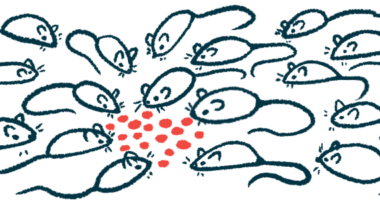Amicus Therapeutics Gets Two U.S. Patents as Part of AT-GAA Therapy’s Development

Amicus Therapeutics received two U.S. patents for ATB200, a unique recombinant (lab-made) human acid alpha-glucosidase (rhGAA) enzyme, and the biologic component of the company’s investigational Pompe disease therapy AT-GAA.
One patent covers the composition of matter for rhGAA; the second, the methods for making ATB200. The patents expire in 2035 and 2036, respectively. AT-GAA consists of ATB200 co-administered with a small molecule pharmacological chaperone (AT2221).
“These newly issued U.S. patents reflect the novelty and uniqueness of our protein engineering and biologics expertise to develop a differentiated, highly potent recombinant GAA enzyme as the key component of our novel Pompe treatment paradigm,” John F. Crowley, chairman and chief executive officer of Amicus Therapeutics, said in a press release.
“We believe these attributes are necessary to optimally target this enzyme to muscles in patients. The issuance of these key patents also embodies the many years of tremendous hard work, perseverance and ingenuity of the Amicus science and technical operations teams as well as the enormous investment of capital required to create and make this new medicine,” Crowley said.
The Phase 3 PROPEL trial (NCT03729362) is currently testing AT-GAA in adult patients with late- onset Pompe disease.
The trial, going on at several clinical sites in the U.S. and at single centers in Australia, Spain and Denmark, is recruiting participants. More information is available on the trial’s official page.
Participants will be randomized to AT-GAA or to current standard-of-care therapy (alglucosidase alfa, marketed as Lumizyme and Myozyme). The study will compare the efficacy, safety, and tolerability of both treatments in adults with late-onset Pompe disease over a one-year period. The study’s primary outcome will determine the therapy’s efficacy by assessing patient responses in the Six Minute Walk Test.
Previous data from a Phase 1/2 clinical trial showed that treatment with AT-GAA improved motor and respiratory function in patients with Pompe disease. The therapy also resulted in a durable decrease of muscle damage biomarkers.
The U.S. Food and Drug Administration (FDA) has granted Breakthrough Therapy Designation (BTD) to AT-GAA for the treatment of late-onset Pompe disease. Amicus is pursuing patent applications in other areas, including Europe and Japan.
“These patents provide Amicus with broad and long-term intellectual property rights into the mid-2030s and significantly strengthen our position as we advance AT-GAA to become the next potential standard of care for Pompe disease. As we continue to serve patients globally and invest in additional research and development for AT-GAA, we also look forward to further expanding our intellectual property portfolio around the world,” Crowley said.






